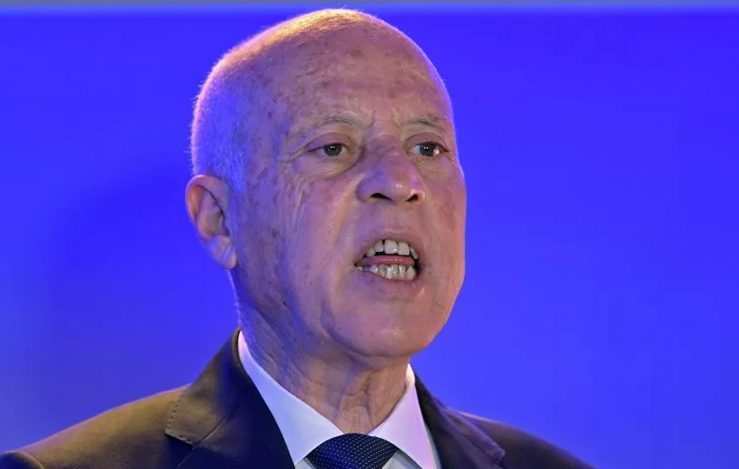Tunisia denies subjecting itself to any compromises in exchange for European financial support

The Tunisian presidency stressed that the talk about Tunisia’s submission to the European dictates on the basis of efforts made by Italy and a number of countries to support Tunisia financially is contrary to reality, recalling the statement of President Kais Saied rejecting all dictations related to the Monetary Fund and the need to preserve national sovereignty.
Speaking on Channel Nine, Tunisian President Walid Al-Hajam’s diplomatic advisor said that the presidency is subject to European dictates in return for financial support, including on the issue of irregular migration and the resettlement of sub-Saharan Africans.
Al-Hajam explained that discussing European dictates is funny and subjecting to them is “more funny,” stressing that the president has repeatedly said that he does not neglect national sovereignty and civil peace in the country, whatever the reasons.
He recalled President Saied’s rejection of the IMF’s mandate in return for granting the country $1.9 billion, especially in terms of increasing subsidies and selling national institutions facing difficulties, adding that “civil peace is a red line that cannot be crossed.”
The European Union has expressed its readiness to provide financial support to Tunisia in order to help it face its suffocating economic crisis, this development comes just a few days before the second visit by the Italian Prime Minister Giorgia Meloni to Tunisia on Sunday, accompanied by European Commission President Ursula von der Leyen and Dutch Prime Minister Mark Rutte.
Sources said the EU was providing nearly 900 million euros in support, which would be added to about 1.9 billion dollars from the IMF, if understandings were reached and if the talks broke down.
Following her meeting with Saied on Tuesday, Meloni said that she had called on the European Union to allocate an integrated support package to Tunisia, while the EU Commissioner for Internal Affairs, Elva Johansson, described in a statement at the time the Italian Prime Minister’s visit to Tunisia as “important”, describing the country as “a key partner.”
However, with the talk of the European aid package, talk has escalated about Tunisia’s making concessions with regard to issues of settling African migrants, but Walid Al-Hajam stressed that national sovereignty cannot be compromised under any circumstances.
He stressed that it is unacceptable to limit the dialog between the president and the European side to the IMF loan file, stressing that there are many areas of cooperation.
Saied had called for an international conference to confront the phenomenon of irregular migration, a position supported by Italy, the largest country affected by the growing phenomenon, which prompted it to declare a state of emergency.
Rome and its Yemeni government fear the consequences of the collapse of the Tunisian economy on the security of the country and the escalation of the immigration process, which will lead to the failure of Georgia Miloni and her right-wing party in any upcoming elections.
Tunisia has repeatedly rejected becoming Europe’s de facto border guard in the Mediterranean, arguing that the issue of illegal migration must be resolved in the context of a comprehensive approach that is currently taking place.












